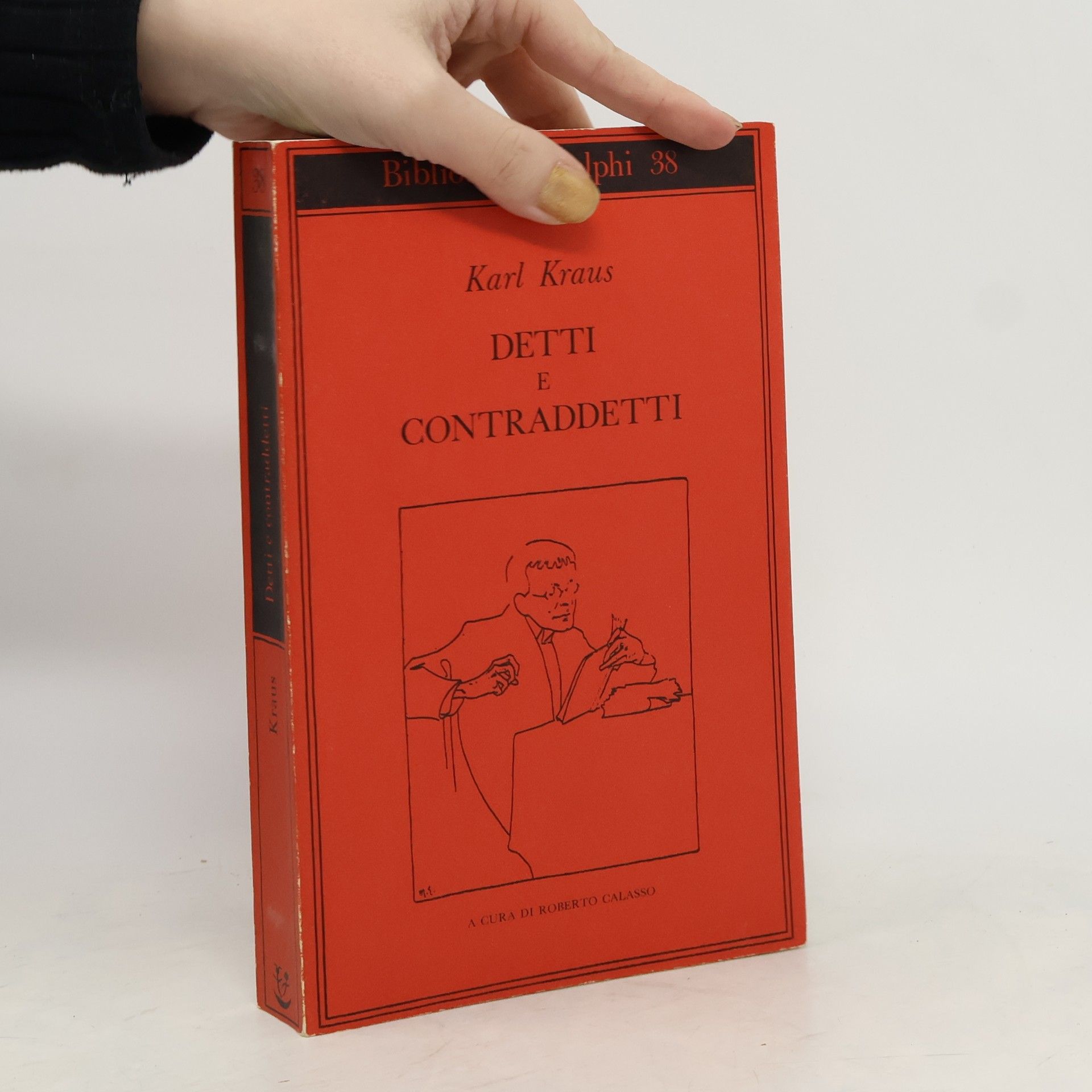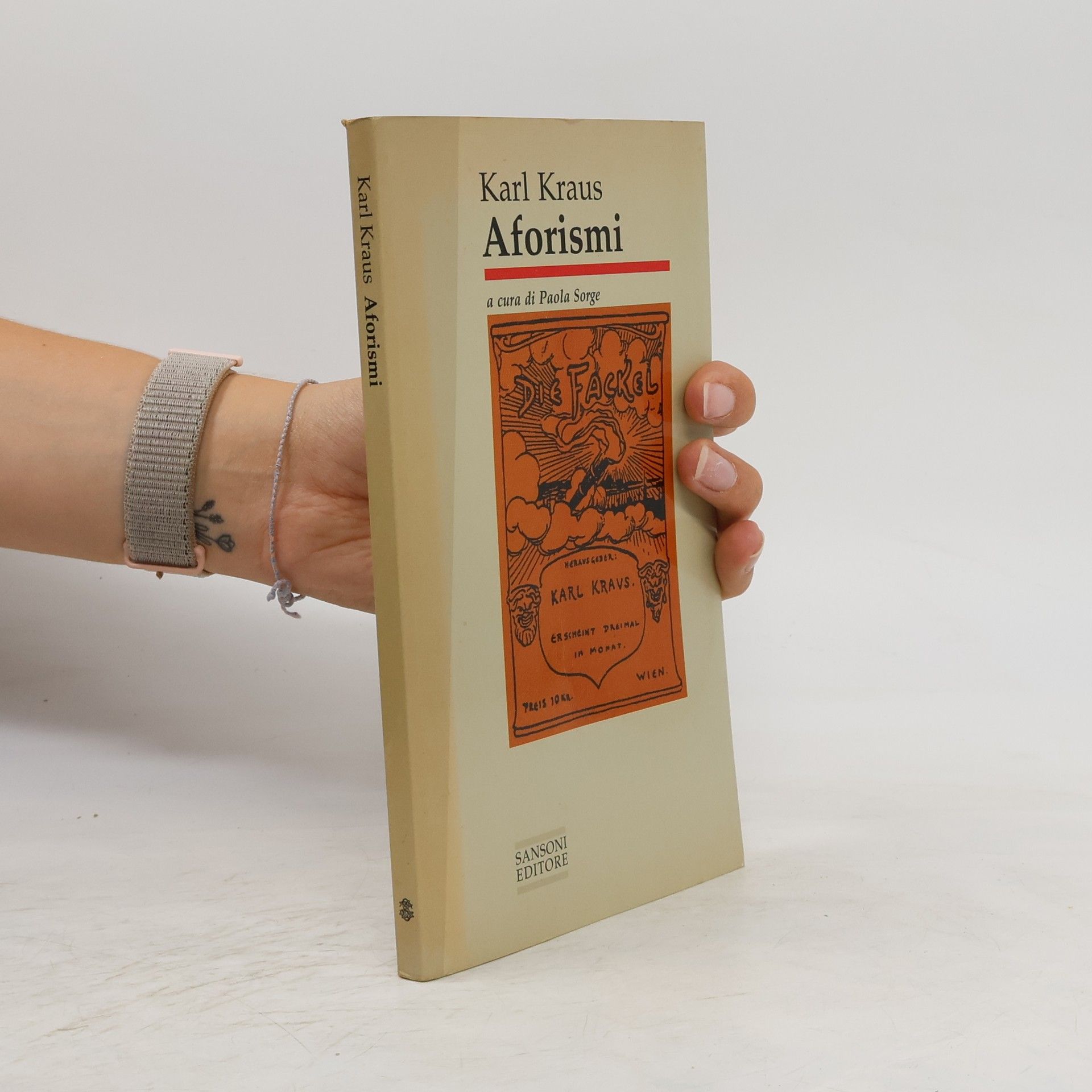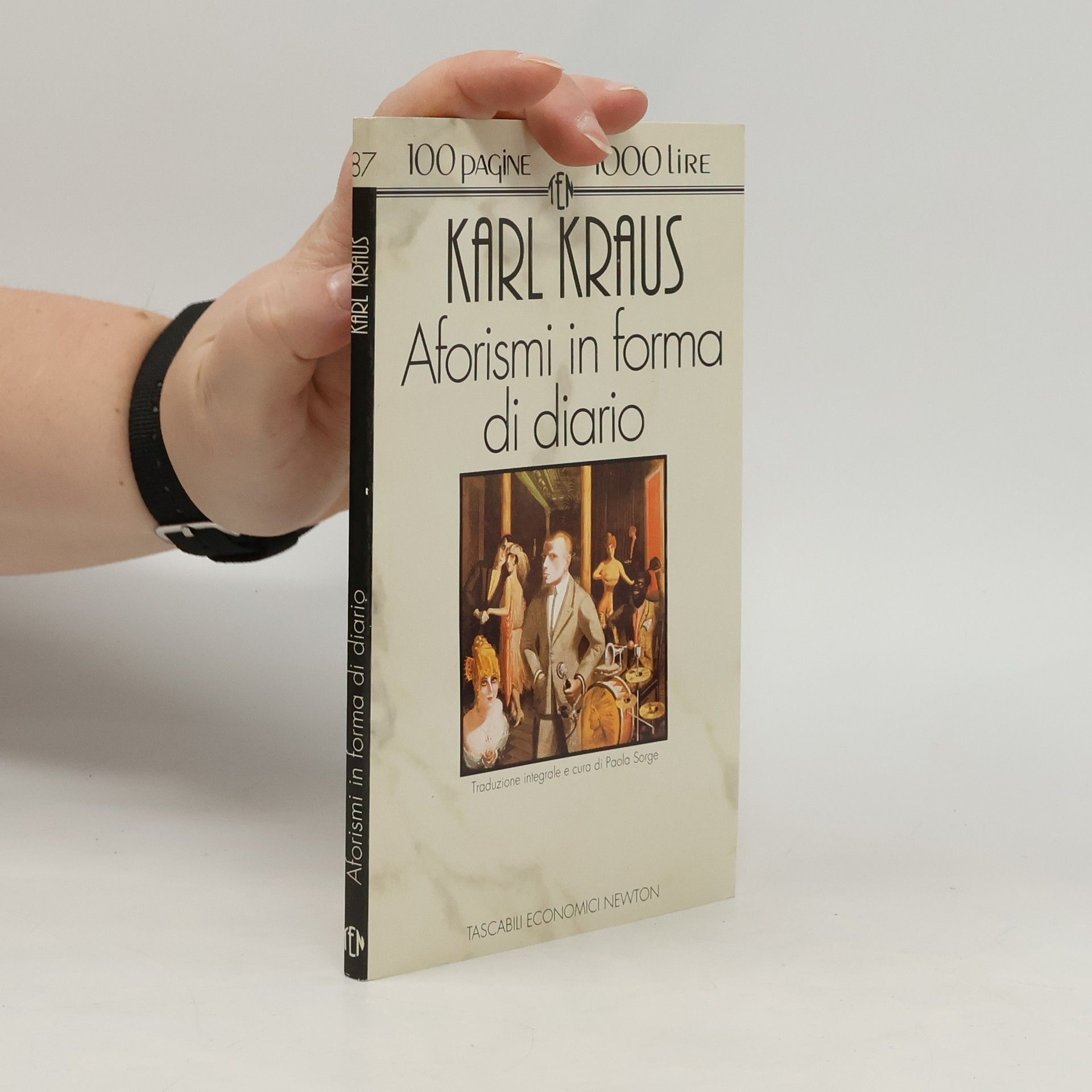Aforismi in forma di diario
- 91pagine
- 4 ore di lettura
Karl Kraus si erge come una figura imponente della satira europea, spesso salutato come il primo grande satirico del continente dai tempi di Jonathan Swift. Il suo acuto ingegno e la sua lente critica si rivolsero principalmente alla stampa, allo stato della cultura tedesca e ai paesaggi politici di Germania e Austria. Attraverso il suo multiforme lavoro di scrittore, giornalista, drammaturgo e poeta, Kraus utilizzò aforismi e saggi come potenti strumenti per sezionare e criticare la società del suo tempo, lasciando un segno indelebile nel discorso letterario e giornalistico.







"Now available in English for the first time, Austrian satirist and polemicist Karl Kraus's Third Walpurgis Night was written in immediate response to the Nazi seizure of power in 1933 but withheld from publication for fear of reprisals against Jews trapped in Germany. Acclaimed when finally published by Kösel Verlag in 1952, it is a devastatingly prescient exposure, giving special attention to the regime's corruption of language as masterminded by Joseph Goebbels. Bertolt Brecht wrote to Kraus that, in his indictment of Nazism, "You have disclosed the atrocities of intonation and created an ethics of language." This masterful translation, by the prizewinning translators of Kraus's The Last Days of Mankind, aims for clarity where Kraus had good reason to be cautious and obscure"-- Provided by publisher
Conceived 'for a theatre on Mars', Kraus' apocalyptic tragedy 'The Last Days of Mankind' is the longest play ever written. A bitingly satirical commentary on the horrors of WWI, it employs a collage of modernist techniques to evoke a despairing vision of the Great War from the perspective of Kraus' hometown, Vienna.
100 years ago, the Viennese satirist Karl Kraus was among the most penetrating and prophetic writers in Europe: a relentless critic of the popular media's manipulation of reality, the dehumanizing machinery of technology and consumerism, and the jingoistic rhetoric of a fading empire. But even though his followers included Franz Kafka and Walter Benjamin, he remained something of a lonely prophet, and few people today are familiar with his work. Thankfully, Jonathan Franzen is one of them. In 'The Kraus Project', Franzen not only presents and annotates his definitive new translations of Kraus, with supplementary notes from the Kraus scholar Paul Reitter and the Austrian writer Daniel Kehlmann. In Franzen Kraus has found his match: a novelist unafraid to voice unpopular opinions strongly, a critic capable of untangling Kraus's often dense arguments.
Karl Kraus, geboren am 28. April 1874 in Gitschin, ist am 12. Juni 1936 in Wien gestorben. Das erste Buch von Karl Kraus, erschienen 1908, vereinigt die wichtigsten Arbeiten, die er zwischen 1902 und 1907 in seiner Zeitschrift Die Fackel zu Fragen der Gesetzgebung und der Rechtsprechung – zumal auf dem Feld der Sexualjustiz – veröffentlicht hat. An einer Vielzahl schlagender Beispiele werden Weltfremdheit und Lebensfeindlichkeit einer Judikatur dargetan, die mit ihrem Versuch, das vermeintliche Rechtsgut der »Sittlichkeit« zu schützen, der »Kriminalität« geradezu Vorschub leistet und überdies den Schutz wirklicher Rechtsgüter, der Gesundheit, der Willensfreiheit und der Unmündigkeit, versäumt. Leidenschaftlich nimmt sich Kraus der Opfer dieser Strafrechtspflege an: der Kranken, der Armen, der Frauen, und erhebt beredte Klage gegen ihre Verfolger: die Gesellschaft, das Gericht und die Presse. Das der Sache nach noch immer höchst aktuelle Buch stellt zugleich die erste Probe dar einer polemischen und satirischen Meisterschaft, die sich schon hier des erhellenden Witzes und des enthüllenden Zitats souverän zu bedienen weiß.
Sborník příspěvků z mezinárodního sympozia přibližuje vztah význačného rakouského spisovatele Karla Krause k Sidonii Nádherné i českému prostředí.
Eine gemeinsame Veröffentlichung der Deutschen Akademie für Sprache und Dichtung und der Wüstenrot Stiftung An seinem Grab versammelte sich vor 90 Jahren das Wien des Fin de Si?e: Egon Friedell, Arnold Schönberg, Adolf Loos, Karl Kraus und hunderte andere Freunde und Bewunderer nahmen Abschied von Peter Altenberg (1859-1919). In diesem tragischen Genie hatte die Wiener Kaffeehausszene ihren Chronisten gefunden: Altenberg hielt fest, was der Tag ihm zutrug - in Prosaskizzen mit Blitzlichtwirkung, Texten, die gegen Ende seines von Alkohol- und Drogenkonsum beschädigten Boh?lebens in Gedankensplitter zerfielen, denen das Wort kaum mehr nachkam. Peter Altenbergs Werk ist heute nur noch in wenigen schmalen Auswahlausgaben greifbar. Mit dieser Edition erscheint zu seinem 150. Geburtstag am 9. März die umfangreichste Werkausgabe, die es je gab: Anhand von Arbeitsexemplaren ist hier die dreibändige Auswahl rekonstruiert, die ursprünglich Altenbergs Freund und Bewunderer Karl Kraus geplant hatte